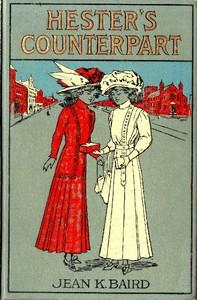Read this ebook for free! No credit card needed, absolutely nothing to pay.
Words: 48156 in 11 pages
This is an ebook sharing website. You can read the uploaded ebooks for free here. No credit cards needed, nothing to pay. If you want to own a digital copy of the ebook, or want to read offline with your favorite ebook-reader, then you can choose to buy and download the ebook.
rm industry, while it often produces men of strong mind, keen perception, resolute will, does not, as a rule, develop executive capacity for large enterprises.
It is frequently asserted that farmers are the only class that has not organized. This is not strictly true. The difficulties enumerated are real difficulties and have seriously retarded farm organization. But if the progress made is not satisfactory, it is at least encouraging. On the purely business side, over five thousand co-operative societies among American farmers have been reported. In co-operative buying of supplies, co-operative selling of products, and co-operative insurance the volume of transactions reaches large figures. A host of societies of a purely educational nature exists among stock-breeders, fruit-growers, dairymen. It is true that no one general organization of farmers, embracing a large proportion of the class, has as yet been perfected. The nearest approach to it is the Grange, which, contrary to a popular notion, is in a prosperous condition, with a really large influence upon the social, financial, educational, and legislative interests of the farming class. It has had a steady growth during the past ten years, and is a quiet but powerful factor in rural progress. The Grange is perhaps too conservative in its administrative policy. It has not at least succeeded in converting to its fold the farmers of the great Mississippi Valley. But it has workable machinery, it disavows partisan politics and selfish class interests, and it subordinates financial benefits, while emphasizing educational and broadly political advantages. It seems fair to interpret the principles of the Grange as wholly in line with the premise of this paper, that the farmers need to preserve their status, politically, industrially, and socially, and that organization is one of the fundamental methods they must use. The Grange, therefore, deserves to succeed, and indeed is succeeding.
The field of agricultural organization is an extensive one. But if the farm problem is to be solved satisfactorily, the American farmers must first secure reasonably complete organization.
RURAL EDUCATION
It is hardly necessary to assert that the education of that portion of the American people who live upon the land involves a question of the greatest significance. The subject naturally divides itself into two phases, one of which may be designated as rural education proper, the other as agricultural education. Rural education has to do with the education of people, more especially of the young, who live under rural conditions; agricultural education aims to prepare men and women for the specific vocation of agriculture. The rural school typifies the first; the agricultural school, the second. Rural education is but a section of the general school question; agricultural education is a branch of technical training. These two phases of the education of the farm population meet at many points, they must work in harmony, and together they form a distinct educational problem.
The serious difficulties in the rural school question are perhaps three: first, to secure a modern school, in efficiency somewhat comparable to the town school, without unduly increasing the school tax; second, so to enrich the curriculum and so to expand the functions of the school that the school shall become a vital and coherent part of the community life, on the one hand translating the rural environment into terms of character and mental efficiency, and on the other hand serving perfectly as a stepping-stone to the city schools and to urban careers; third, to provide adequate high-school facilities in the rural community.
The centralization of district schools and the transportation of pupils will probably prove to be more nearly a solution of all these difficulties than will any other one scheme. The plan permits the payment of higher wages for teachers and ought to secure better instruction; it permits the employment of special teachers, as for nature-study or agriculture; it increases the efficiency of superintendence; it costs but little, if any, more than the district system; it leaves the school amid rural surroundings, while introducing into the schoolroom itself a larger volume, so to speak, of world-atmosphere; it contains possibilities for community service; it can easily be expanded into a high school of reputable grade.
There are two dangers, both somewhat grave, likely to arise from an urgent campaign for centralization. Even if the movement makes as great progress as could reasonably be expected, for a generation to come a large share, if not a major portion, of rural pupils will still be taught in the small, isolated, district school; there is danger that this district school may be neglected. Moreover, increased school machinery always invites undue reliance upon machine-like methods. Centralization permits, but does not guarantee, greater efficiency. A system like this one must be vitalized by constant and close touch with the life and needs and aspirations of the rural community itself.
Agricultural education is distinctively technical, not in the restricted sense of mere technique, or even of applied science, but in the sense that it must be frankly vocational. It has to do with the preparation of men and women for the business of farming and for life in the rural community.
Perhaps the most stupendous undertaking in agricultural education is the adequate development of secondary education in agriculture. The overwhelming majority of young people who secure any agricultural schooling whatever must get it in institutions that academically are of secondary grade. This is a huge task. If developed to supply existing needs, it will call for an enormous expenditure of money and for the most careful planning. From the teaching view-point it is a difficult problem. Modern agriculture is based upon the sciences; it will not do, therefore, to establish schools in the mere art of farming. But these agricultural high schools must deal with pupils who are comparatively immature, and who almost invariably have had no preparation in science. Nor should the courses at these schools be ultra-technical. They are to prepare men and women for life on the farm--men and women who are to lead in rural development, and who must get some inkling at least of the real farm question and its solution. The agricultural school, therefore, presents a problem of great difficulty.
A perennial question in agricultural education is: What is the function of the agricultural college? We have not time to trace the history of these colleges, nor to elaborate the various views relative to their mission. But let us for a moment discuss their proper function in the light of the proposition that the preservation of the farmers' status is the real farm problem; for the college can be justified only as it finds its place among the social agencies helpful in the solution of the farm question.
In so far as the agricultural college, through its experiment station or otherwise, is an organ of research, it should carry its investigations into the economic and sociological fields, as well as pursue experiments in soil fertility and animal nutrition.
Free books android app tbrJar TBR JAR Read Free books online gutenberg
More posts by @FreeBooks

: Prisoners Their Own Warders A Record of the Convict Prison at Singapore in the Straits Settlements Established 1825 by Bayliss W D McNair John Frederick Adolphus - Singapore Prison; Prisons Straits Settlements


: Hester's Counterpart: A Story of Boarding School Life by Baird Jean K Jean Katherine - Boarding schools Juvenile fiction; Girls Juvenile fiction








